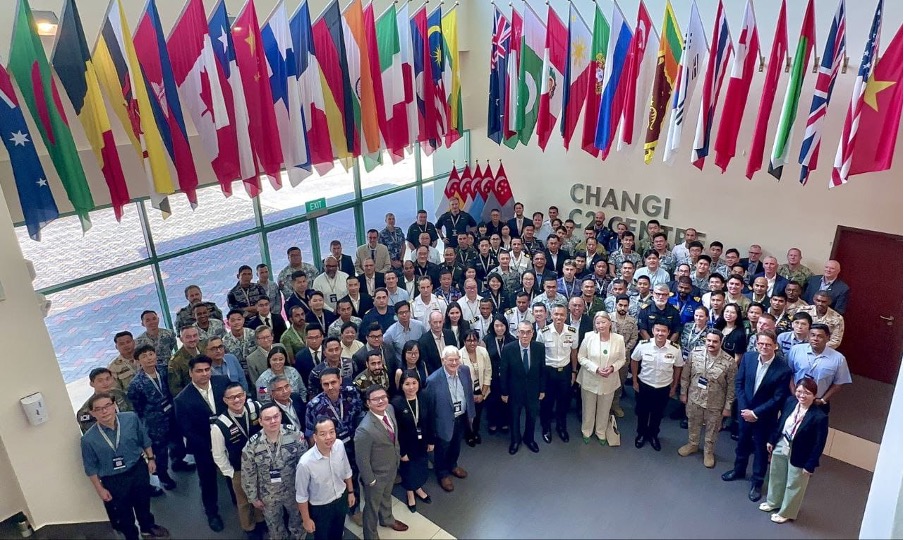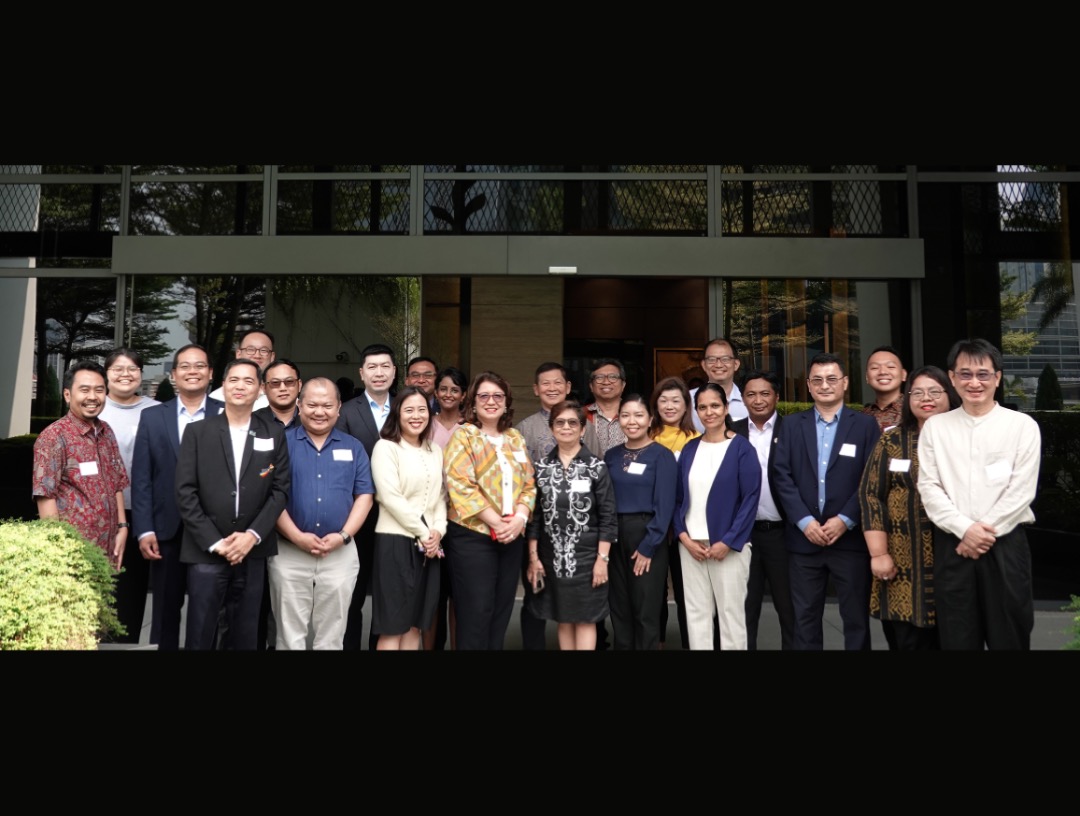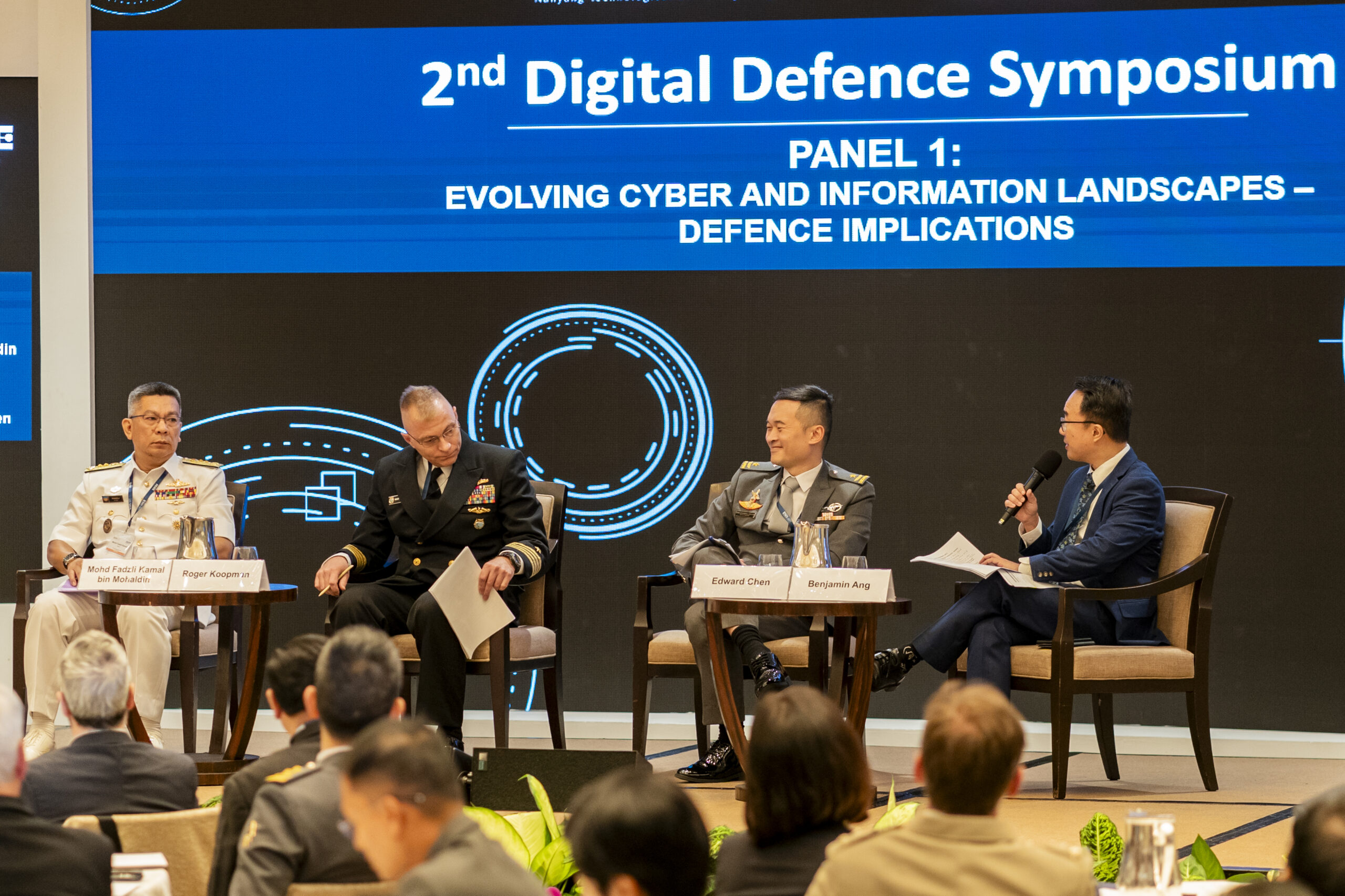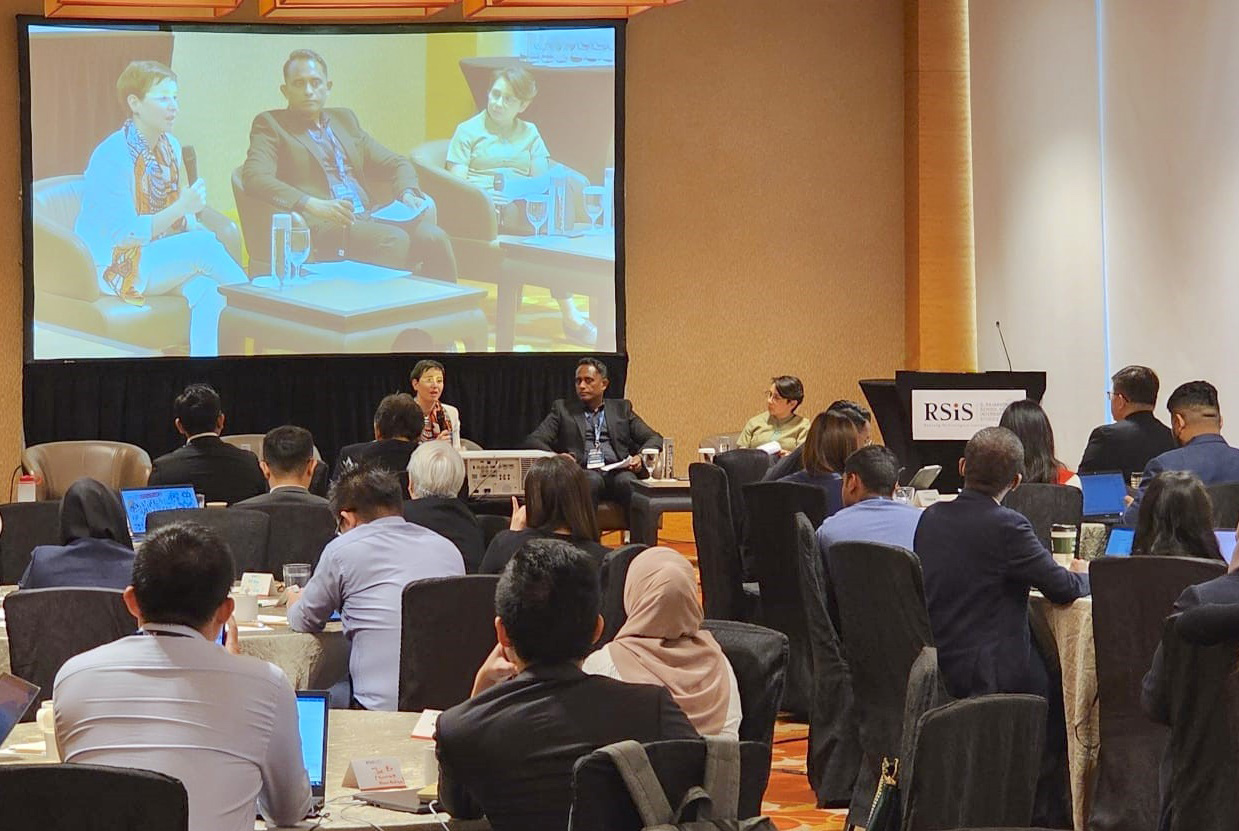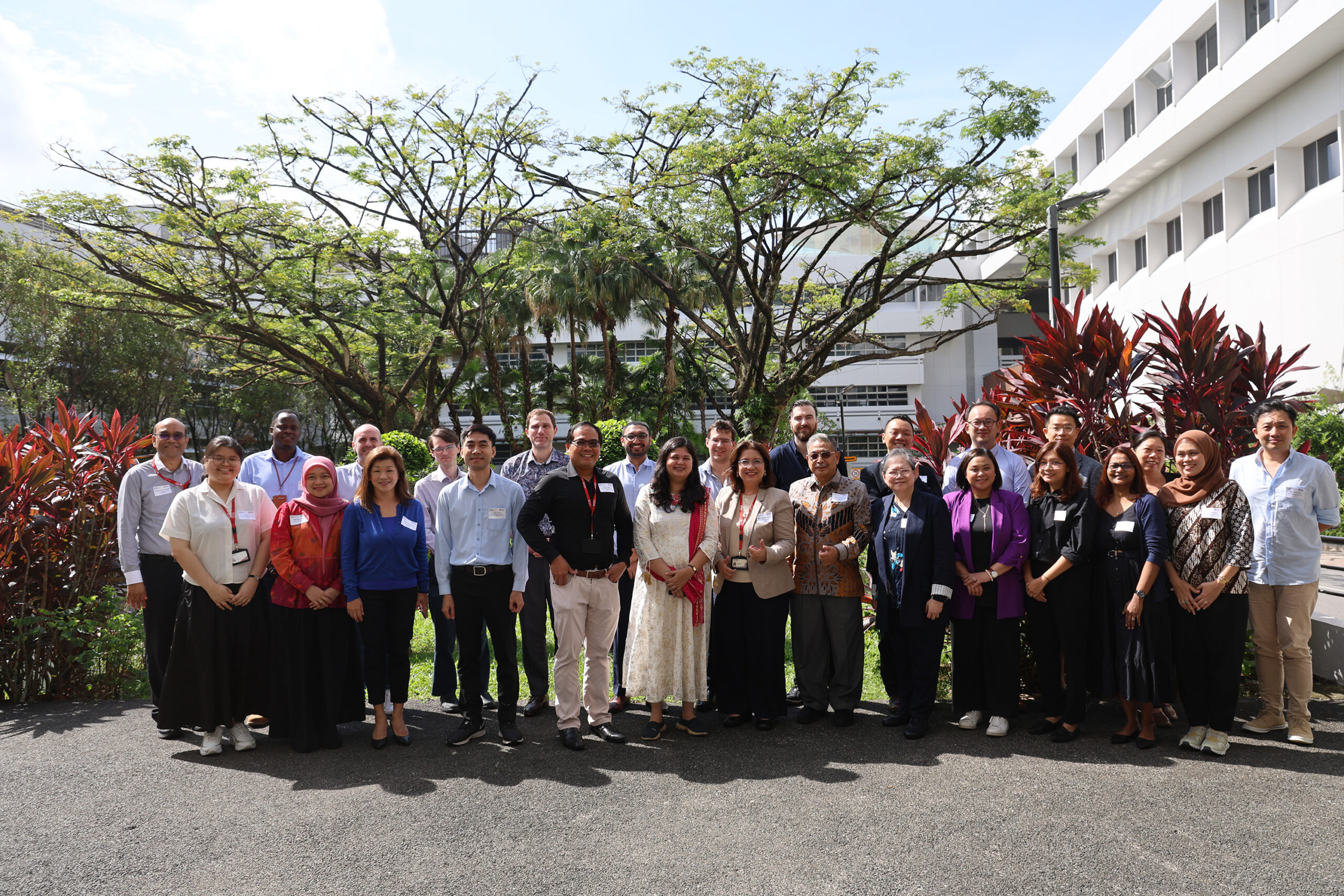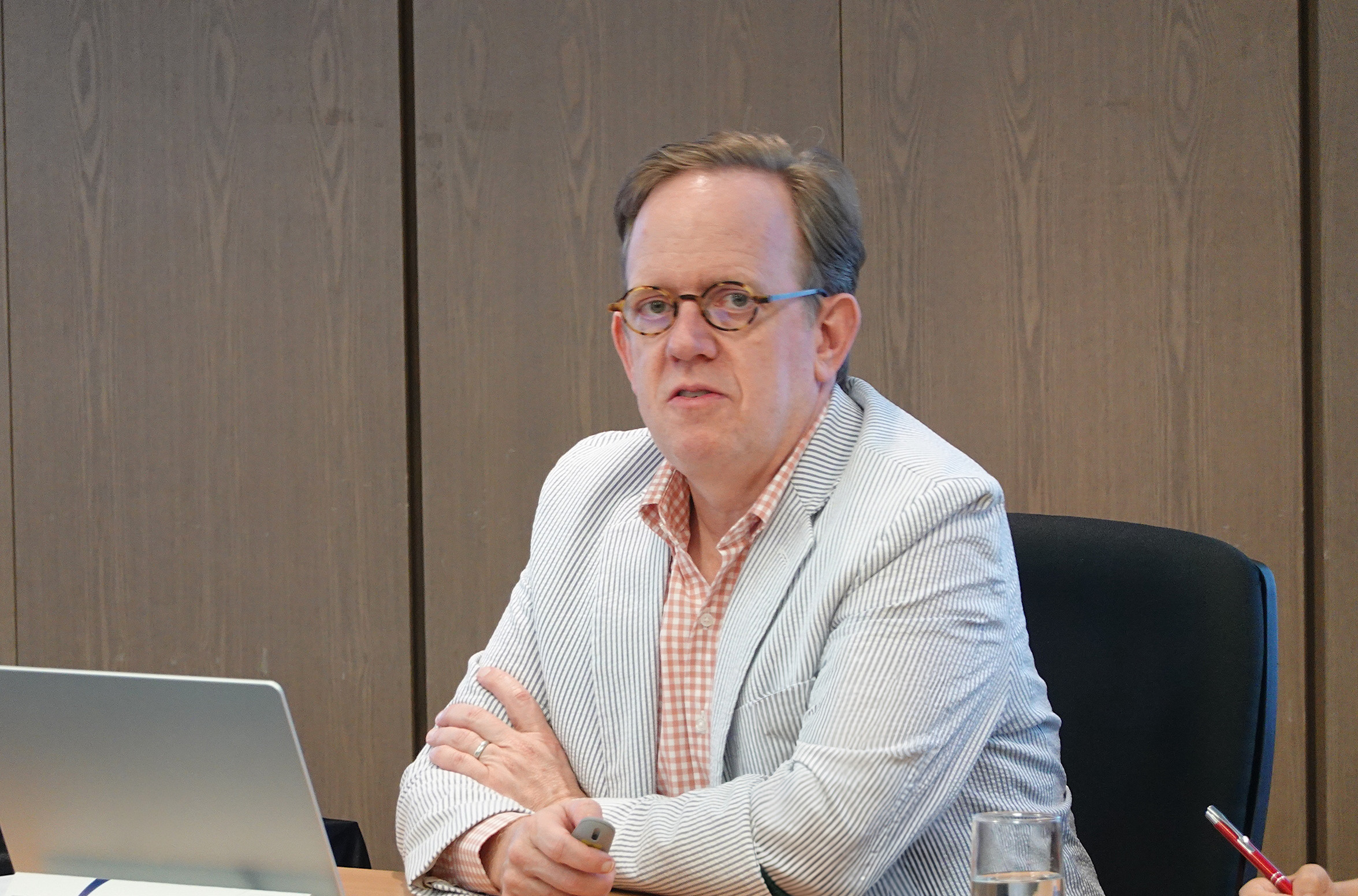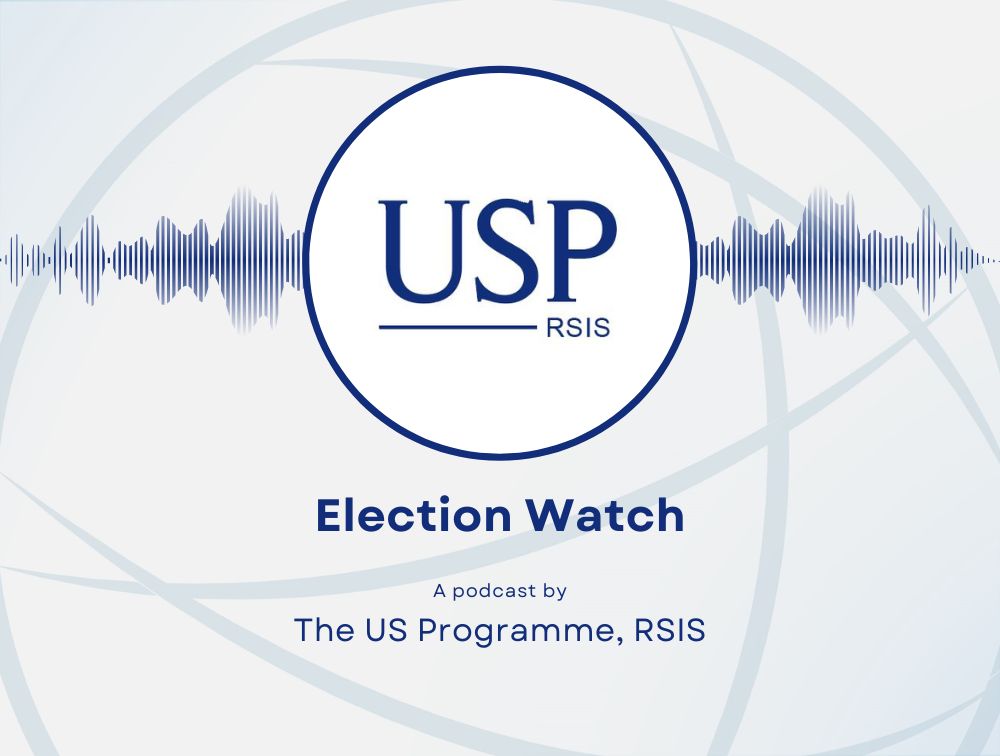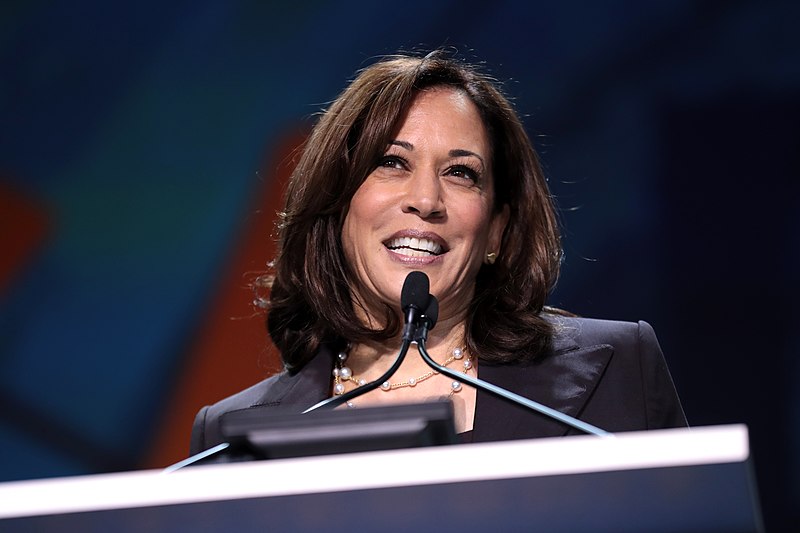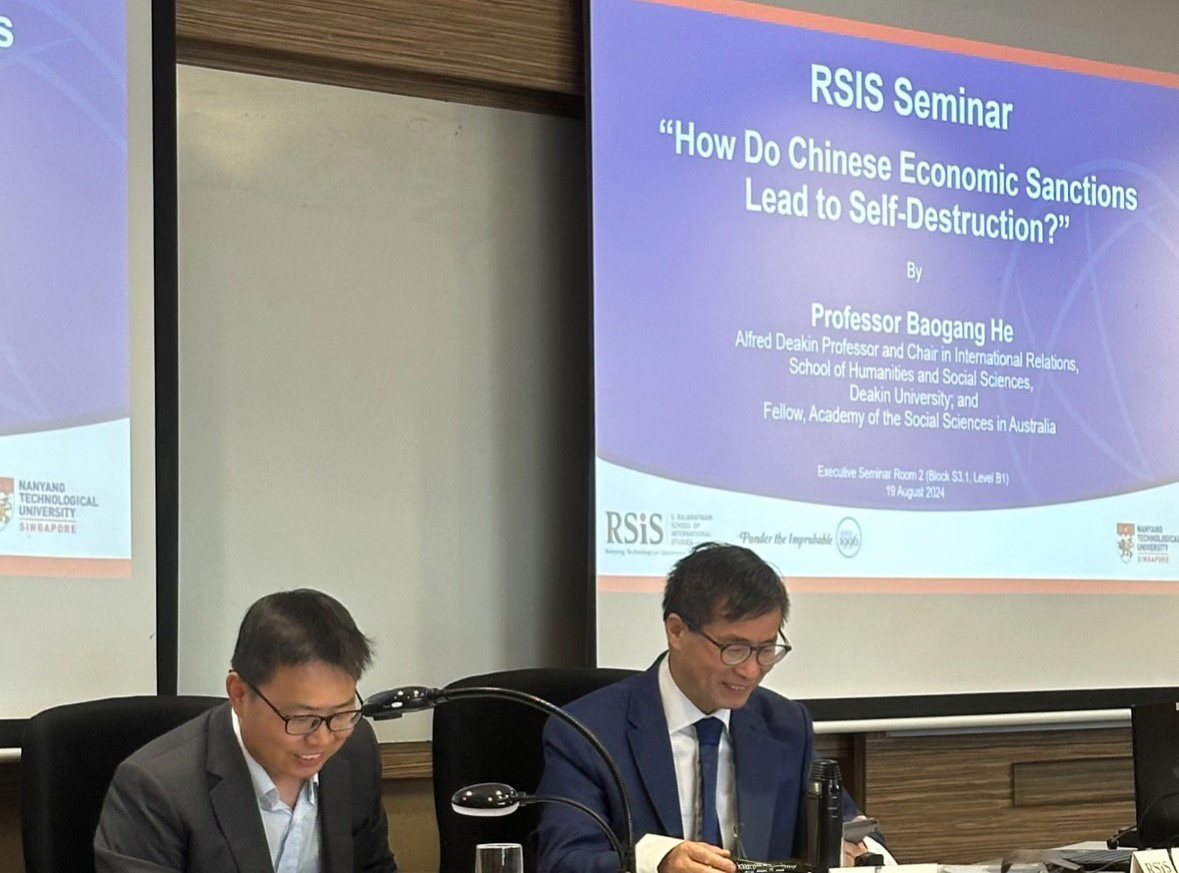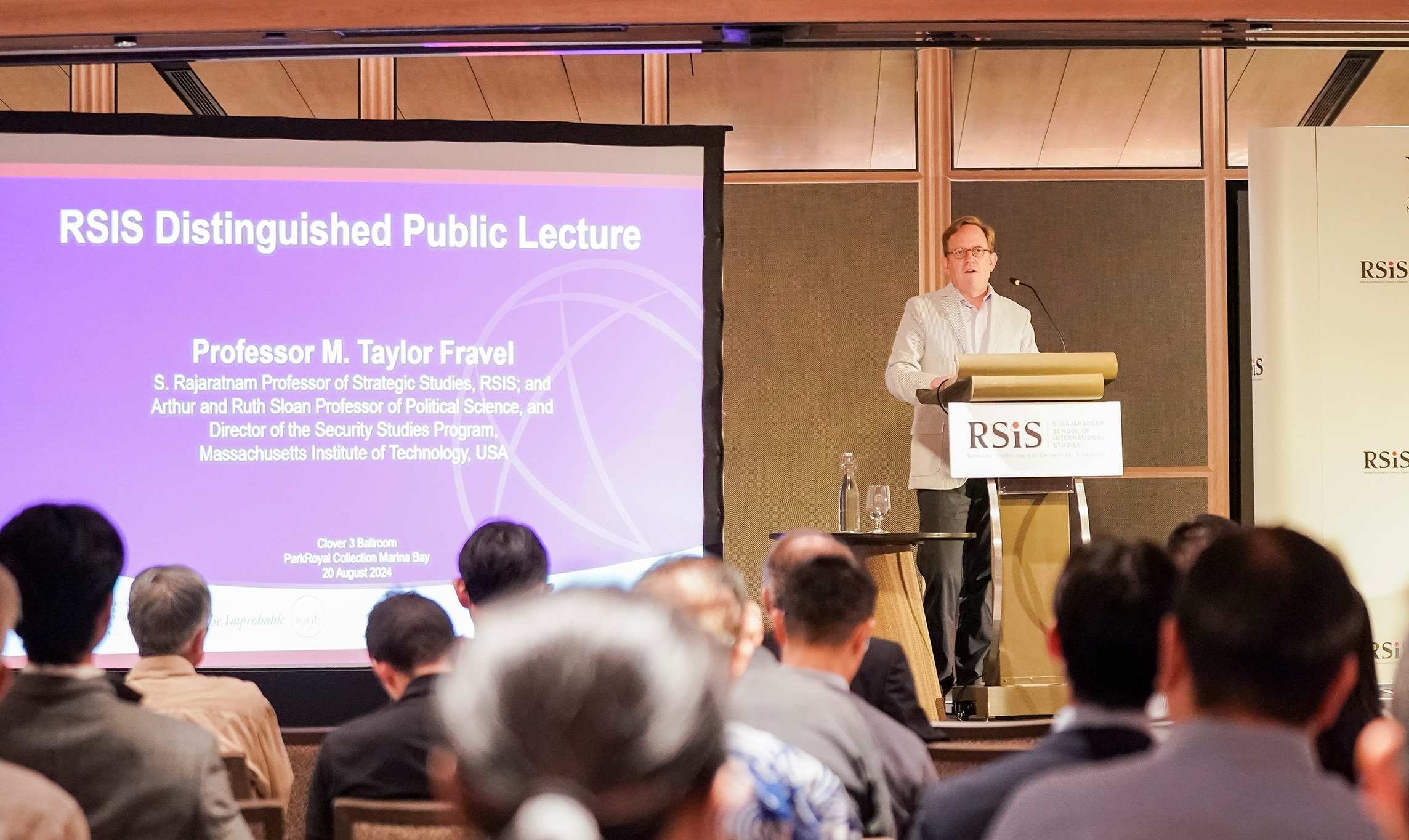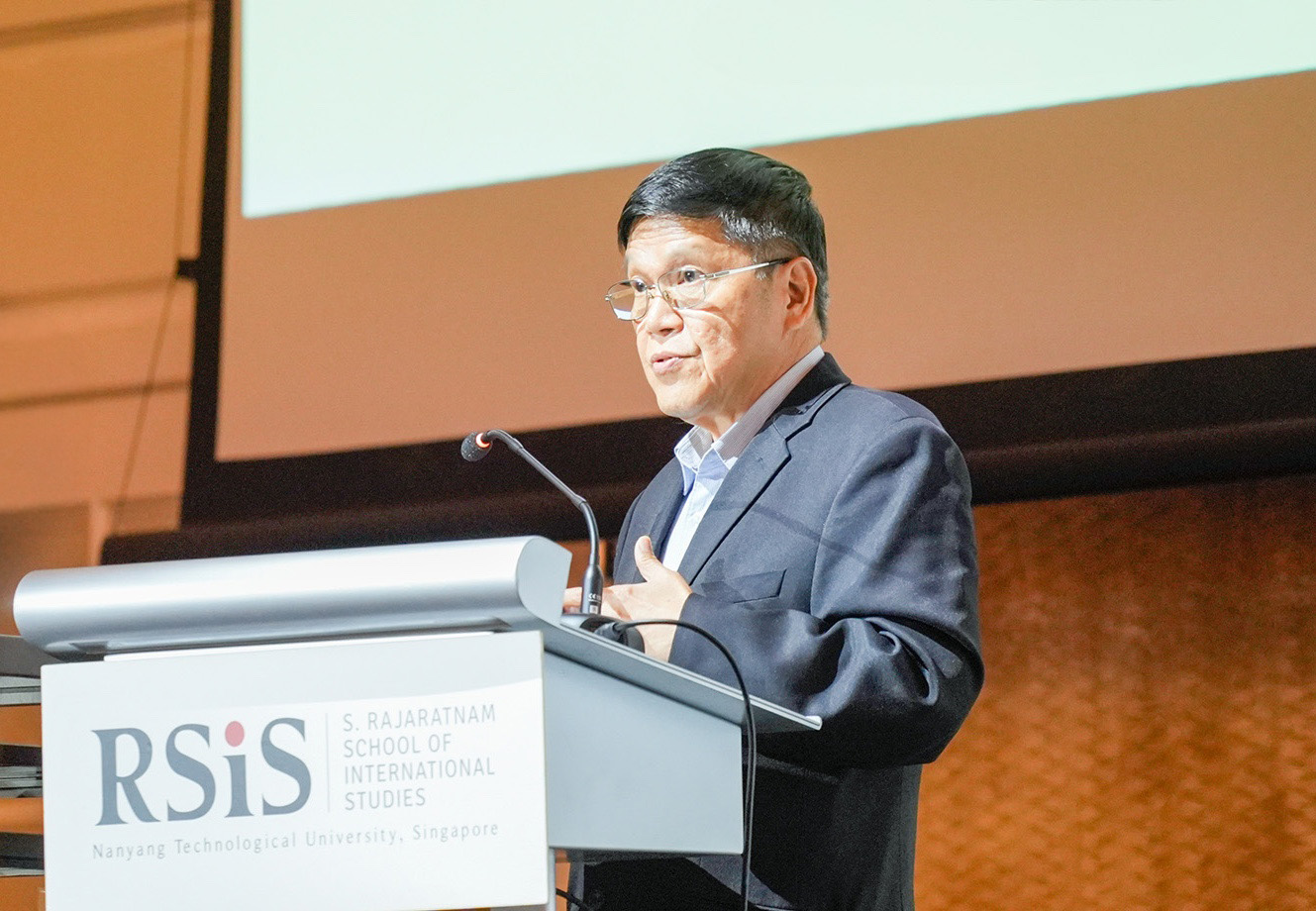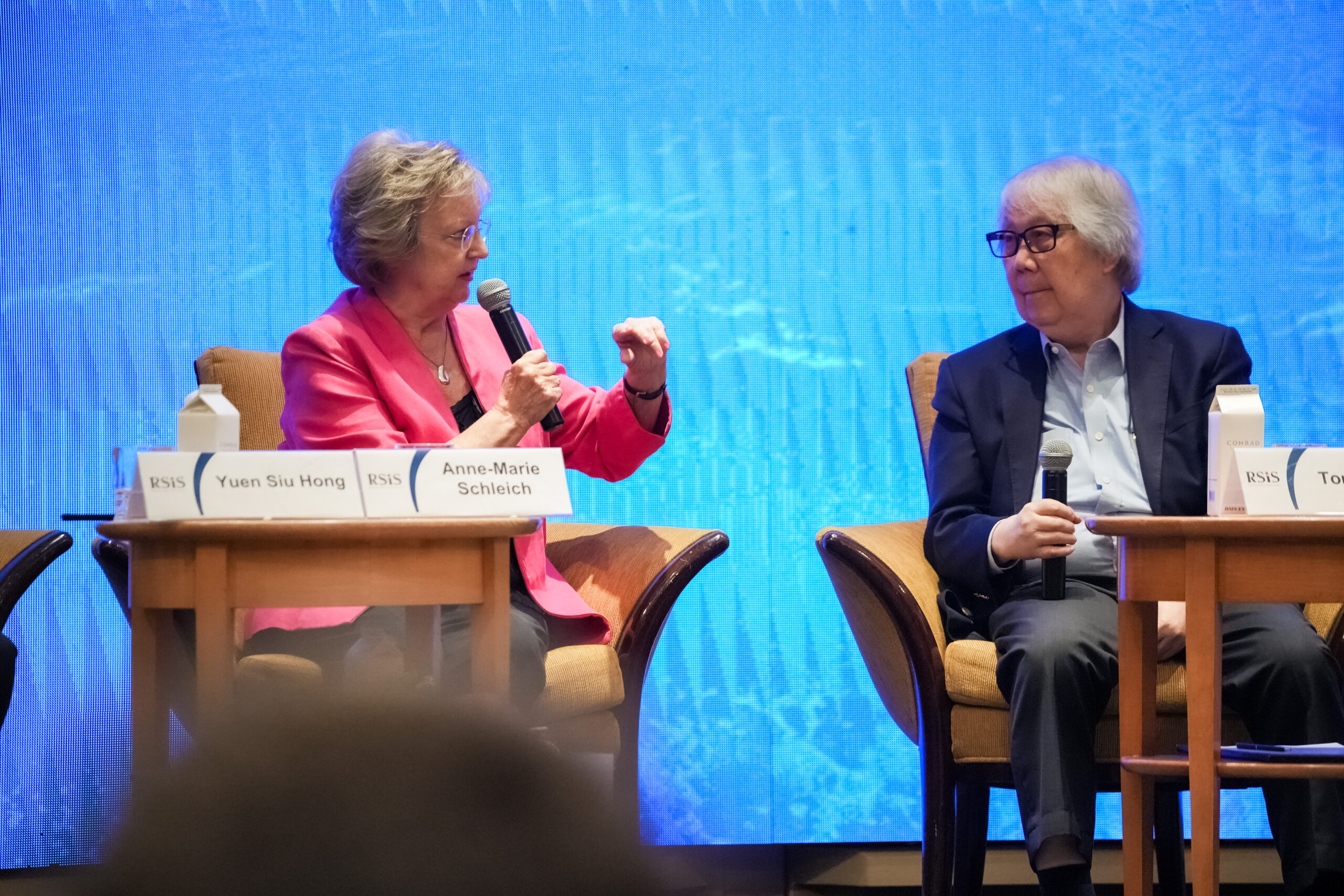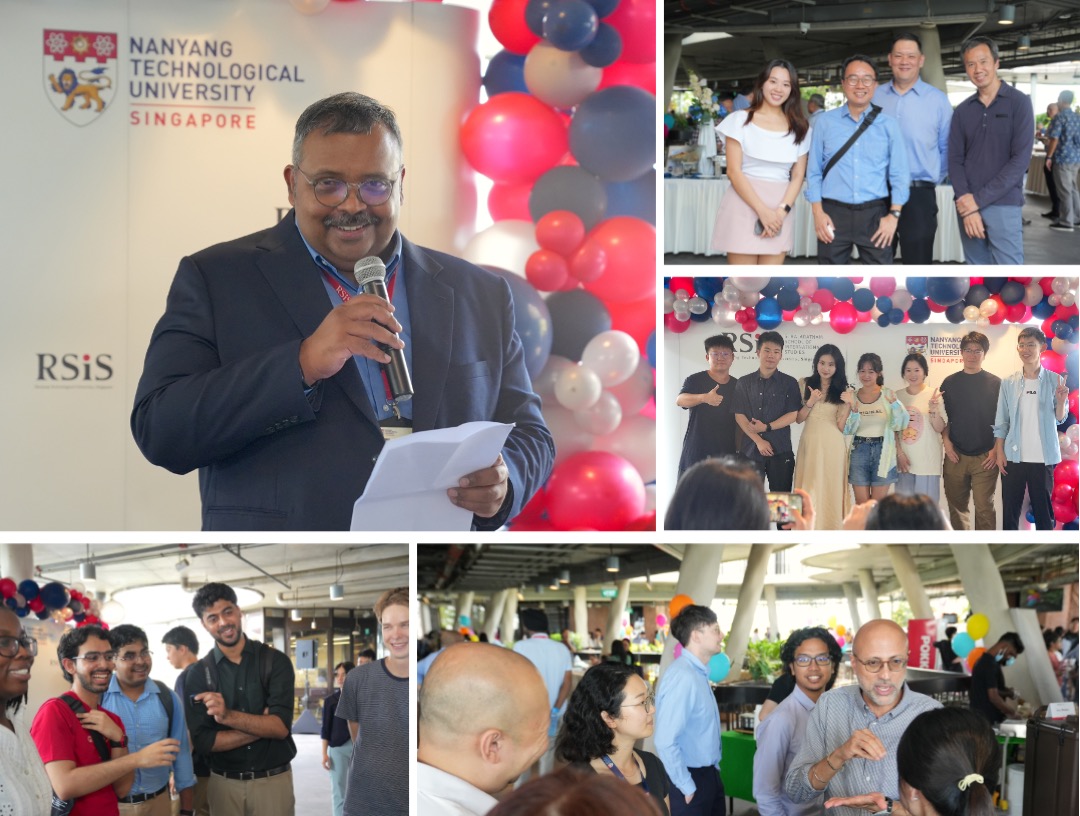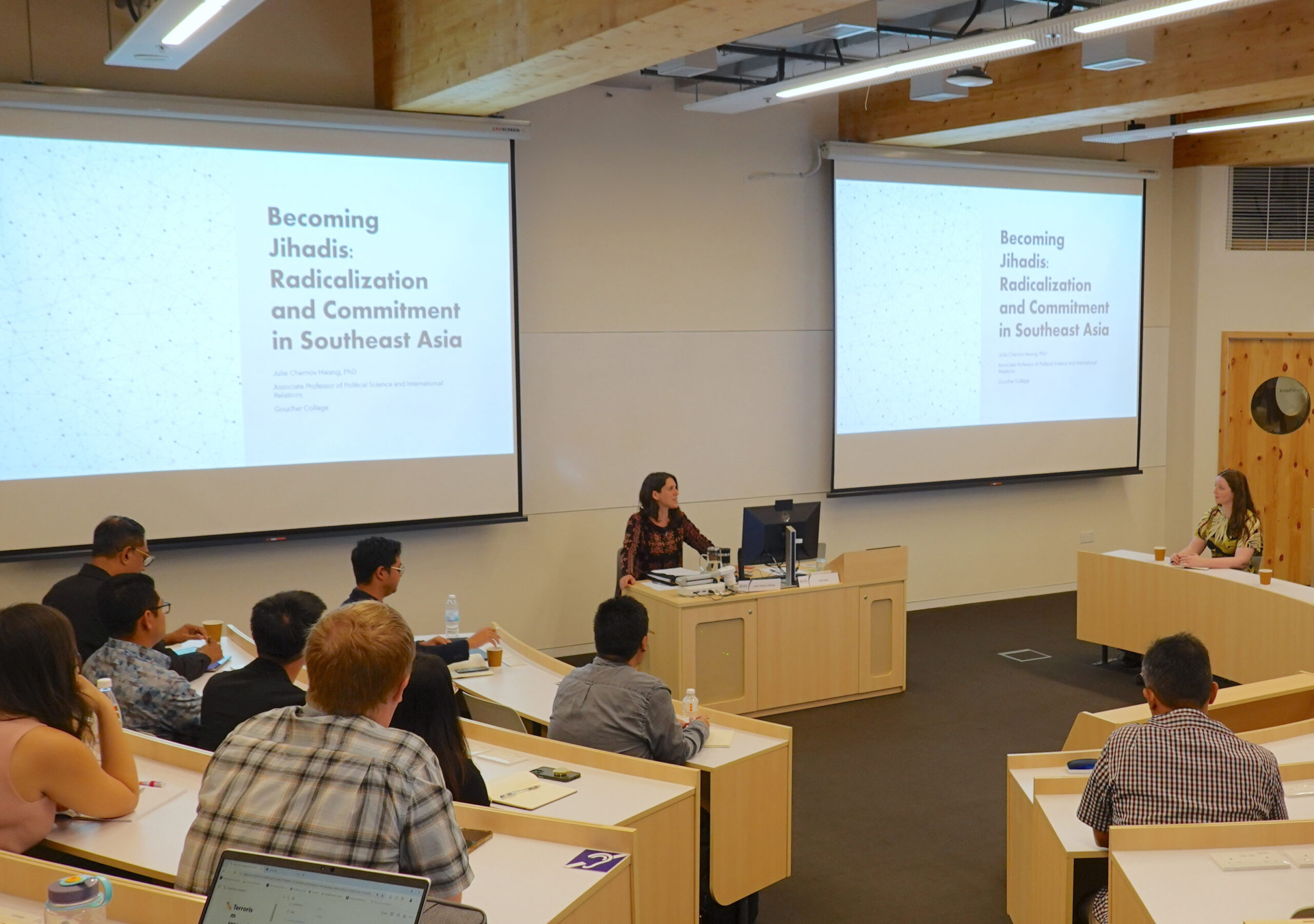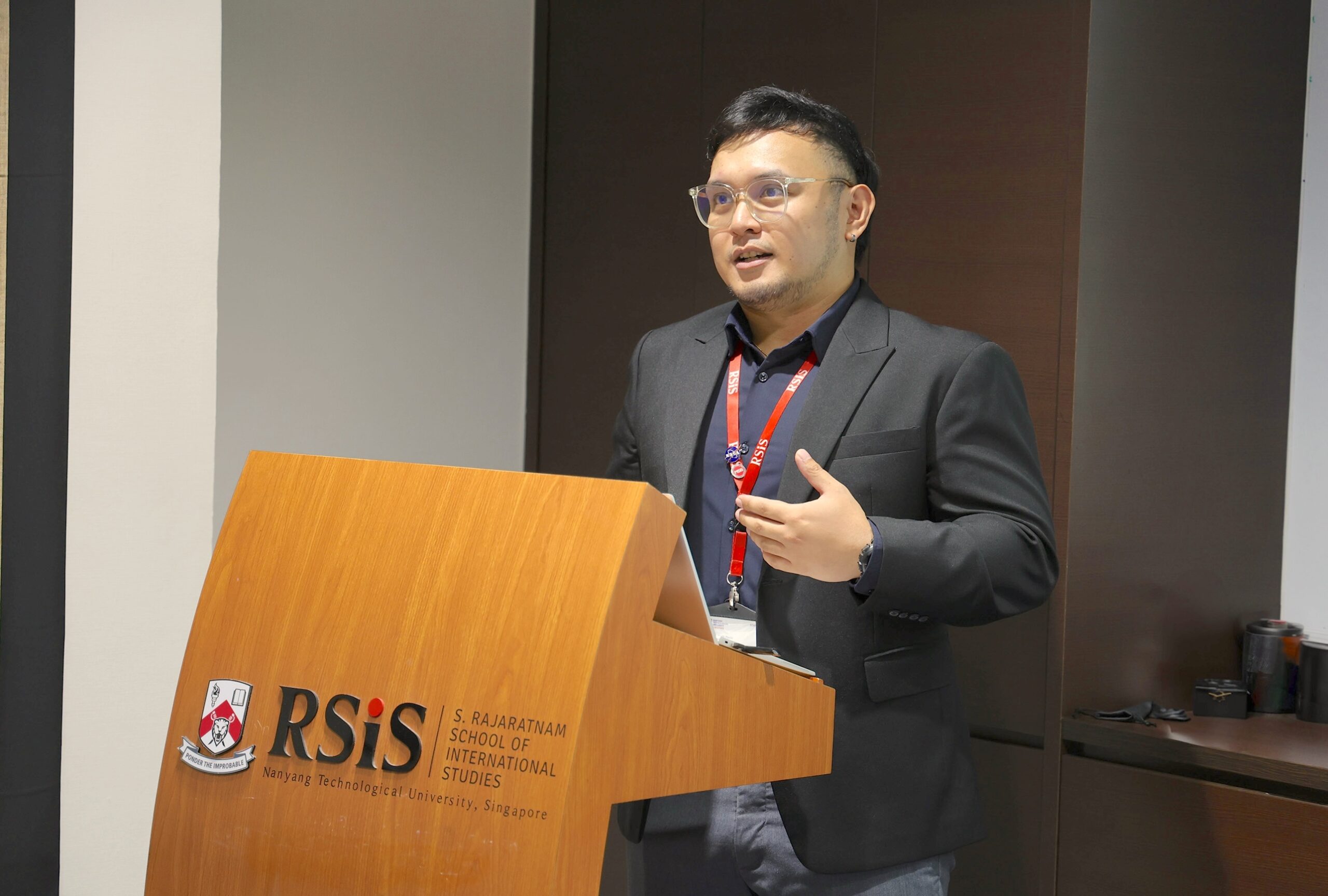
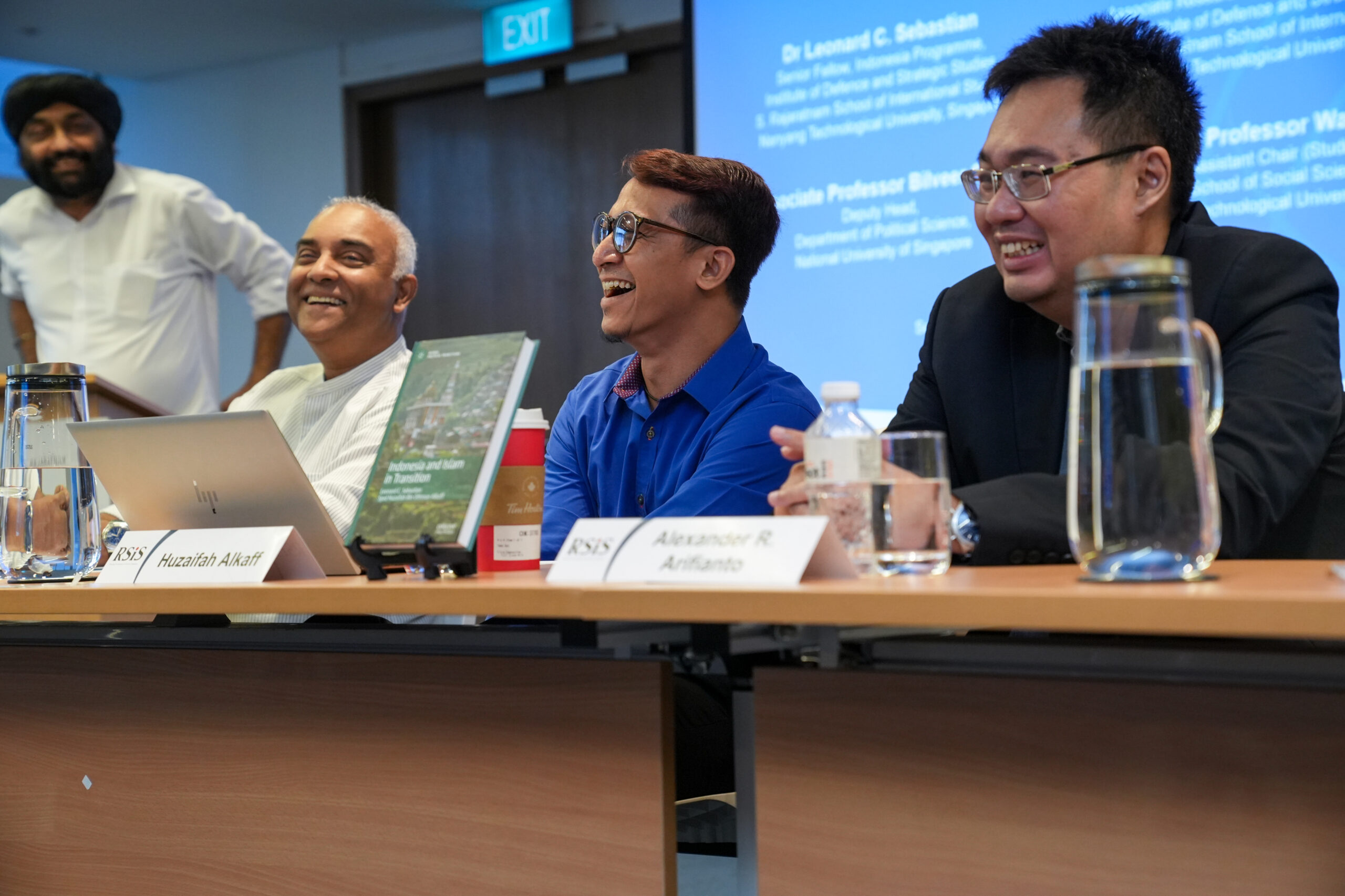
The Indonesia Programme at RSIS organised a book launch seminar on 6 August 2024 for “Indonesia and Islam in Transition”, written by Senior Fellow Dr Leonard C. Sebastian and Associate Research Fellow Syed Huzaifah Bin Othman Alkaff. The seminar featured a panel discussion with Associate Professor Bilveer Singh, Deputy Head of the Department of Political Science at the National University of Singapore; and Assistant Professor Walid Jumblatt Bin Abdullah, Assistant Chair (Students) at the School of Social Sciences, Nanyang Technological University, Singapore.
The lively and enriching panel discussion was moderated by Dr Alexander R. Arifianto, Senior Fellow and Coordinator of the Indonesia Programme. The book launch was attended by more than 40 participants and guests, including RSIS Distinguished Fellow Prof Yaacob Ibrahim, who is currently a professor of engineering at the Singapore Institute of Technology (SIT) where he is also the Advisor to the President of SIT.
After opening remarks by Dr Arifianto, the authors provided a brief overview of their research methodology and findings. Dr Sebastian drew attention to how geography and trade routes played an important role in determining the character and outlook of Muslims across the various Islands. Through his selection of examples, he demonstrated that Indonesian Islam could not be simplified into the oft-referenced abangan-priyayi-santri framework. Syed Huzaifah built on Dr Sebastian’s overview and explained how the authors adapted RSIS Visiting Professor Abdullah Saeed’s framework to place Muslims along soft and strong continuums of theological, social, and political positions, rather than strict categories or self-/externally-imposed labels.
The panel discussants in Singapore were supportive of this approach towards understanding Indonesian Islam, highlighting how the findings of the book concurred with their experiences and reading of Indonesian Islam. Indonesia Islam was certainly more diverse, complex and sophisticated than the imaginings of foreign media and those who were focused on extremists and so-called conservatives. Assoc Prof Bilveer Singh emphasised the importance of Singaporeans’ understanding that Islam in Indonesia is not monolithic, and that its complexity does not make it a “danger”. Asst Prof Walid Jumblatt added that no identity was more securitised than Islam, and that the categories we place upon Muslims had real life implications. Hence, he urged for critical understandings of categories such as conservative, exclusivist, inclusivist, progressive, and liberal.






